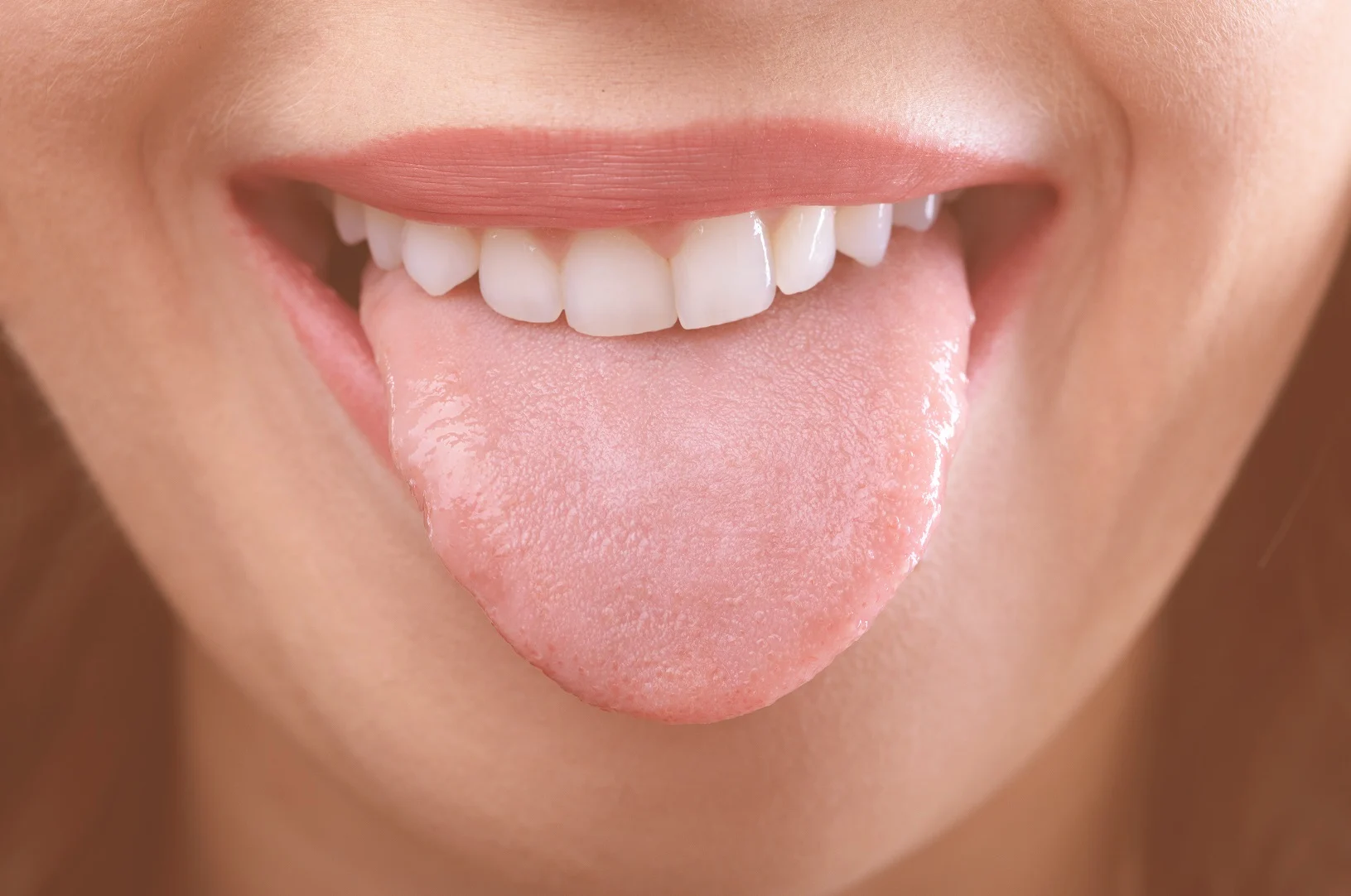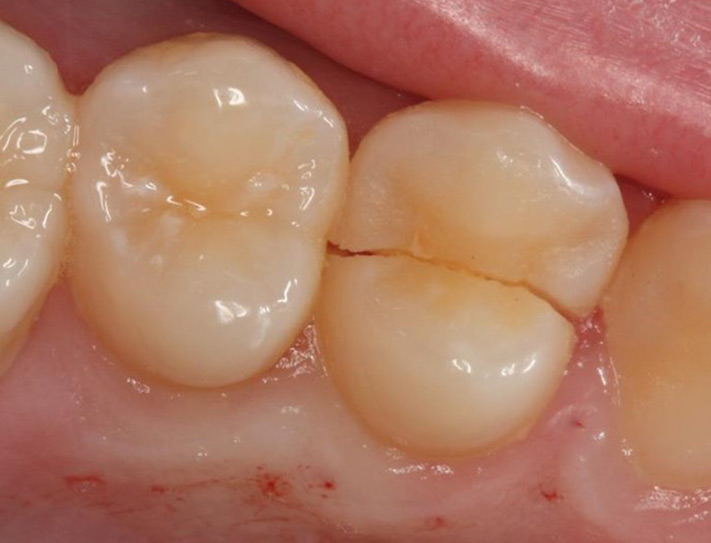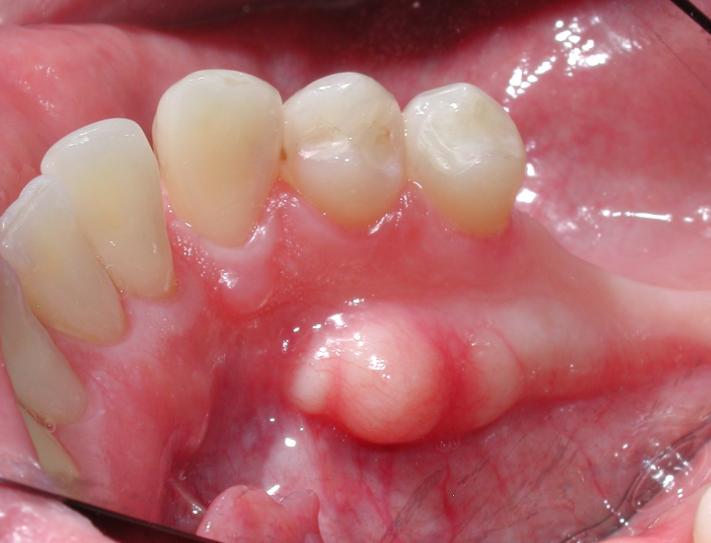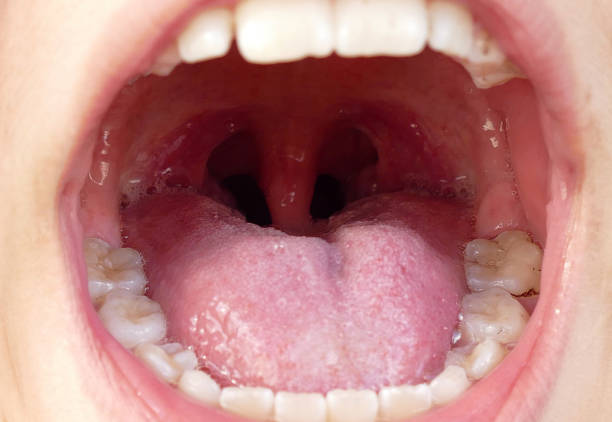Sleep Apnea 101
Is Your Dentist Looking for These 5 Signs of Sleep Apnea?
In the field of dental care, a regular dental check-up encompasses more than just examining the teeth and gums. It can also reveal subtle indicators that may indicate an underlying health issue. Conditions like sleep apnea can affect oral health, and there are oral signs that can alert your dentist to a potential problem.
What Symptoms of Sleep Apnea Can Dentists Look for?
Dentists can observe certain signs and symptoms during routine dental examinations that may indicate a potential risk of sleep apnea. While dentists don’t diagnose sleep apnea, they can play a role in identifying those who may benefit from further evaluation by a sleep specialist. Here are some symptoms and signs of sleep apnea that dentists may look for:
#1: Tongue Scalloping

Tongue scalloping, also known as scalloped tongue or crenated tongue, refers to indentations or impressions along the lateral borders or edges of the tongue. These indentations create a wavy or scalloped appearance, resembling the edge of a scallop shell. Tongue scalloping is usually associated with pressure exerted on the tongue against the teeth during sleep. In obstructive sleep apnea, the tongue falls back into the mouth and can press against the teeth while it blocks the airways.
#2: Cracked Molars

Sleep apnea, especially obstructive sleep apnea (OSA), can lead to tooth damage, particularly in the molars. This occurs due to the increased forces exerted on the teeth during bruxism, which is common in individuals with sleep apnea. Bruxism involves the clenching or grinding of teeth, often during apnea episodes because clenching the teeth helps to open up the airways slightly. However, this repetitive grinding can cause fractures, worn enamel, temporomandibular joint (TMJ) issues, and tooth sensitivity.
#3: Lingual Tori

Lingual tori are bony growths on the underside of the tongue, typically near the premolars or molars. These benign protrusions are usually asymptomatic and may be associated with genetics or oral habits like teeth grinding. Alone, lingual tori may not indicate anything more than bruxism, but combined with other symptoms may lead your dentist to ask about sleep apnea.
#4: Enlarged Tonsils

Enlarged tonsils can be a sign of sleep apnea, especially in children. The tonsils are part of the lymphatic system and can become enlarged due to inflammation or infection. In the context of sleep apnea, particularly obstructive sleep apnea (OSA), enlarged tonsils may contribute to airway obstruction. When the muscles relax during sleep, enlarged tonsils can partially or completely block the airway, leading to pauses in breathing and disrupted sleep patterns.
#5: Elongated Uvula

An elongated uvula can be a sign of sleep apnea, particularly obstructive sleep apnea (OSA). The uvula is the small, fleshy piece of tissue hanging down at the back of the throat. In individuals with OSA, the uvula and surrounding tissues may relax excessively during sleep, partially blocking the airway. An elongated uvula may contribute to increased airway resistance, making it harder for air to flow freely.
How Can Dentists Treat Sleep Apnea?
Dentists can play a role in the diagnosis and management of sleep apnea, primarily through the use of oral appliances. While dentists themselves may not diagnose sleep apnea, they can identify signs and symptoms during routine dental examinations and refer patients to sleep specialists for further evaluation. Here’s how dentists can contribute:
- Screening and Assessment: Dentists may ask patients about their sleep habits, snoring, and daytime fatigue during routine dental check-ups. They can use screening tools to identify individuals at risk of sleep apnea.
- Physical Examination: Dentists can examine the oral and facial structures for signs that may indicate a risk of sleep apnea. These signs may include a narrow airway, enlarged tonsils, or an overbite.
- Collaboration With Sleep Specialists: If a dentist suspects sleep apnea based on the screening and examination, they can refer the patient to a sleep specialist for a comprehensive sleep study (polysomnography) to confirm the diagnosis.
- Custom Oral Appliances: Dentists who specialize in sleep medicine can design and fit custom oral appliances. These devices, also known as mandibular advancement devices (MADs) or dental sleep appliances, are designed to reposition the jaw and tongue to keep the airway open during sleep.
- Follow-up and Adjustment: Dentists can monitor the effectiveness of oral appliances and make necessary adjustments to ensure optimal fit and comfort. Regular follow-up appointments can help assess the patient’s response to treatment.
Collaboration between dentists and sleep specialists ensures a comprehensive and tailored approach to managing sleep apnea based on individual needs and the severity of the condition.
Do You Have Sleep Apnea?
Contact us for an alternative treatment to CPAP machines.
Contact us
Call us
Location
1700 Eagle Harbor Pkwy, Suite 7
Fleming Island, FL 32003
Hours
Monday 9am- 4pm
Tuesday 9am- 4pm
Wednesday 10am - 5pm
Thursday 9am- 4pm
Friday By Appointment
Saturday Closed
Sunday Closed